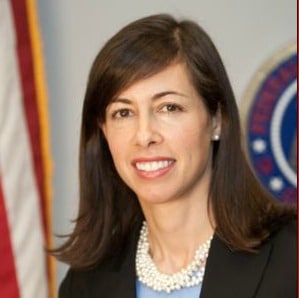
The Democratic member of the FCC says this is a challenging task and there are no simple answers. Rosenworcel is clearly not in favor of allowing radio companies to monopolize all the stations in a market. However, she acknowledged that the Commission does need to rethink limitations put on the ownership of AM radio stations.
Some have argued that the Telecommunications Communications Act of 1996 is old and outdated, especially in light of digital competition. Rosenworcel says some of the policies built into that document have stood the test of time. “Localism matters. Local broadcasting remains the most trusted source of news. When the unthinkable occurs, it is also the preferred source for local emergency information. But this month the University of North Carolina School of Media and Journalism released a study detailing the stark decline of local news in rural areas. Newspapers have collapsed, and stations are increasingly owned by national companies with limited ties to the communities they serve. What is emerging are news deserts—areas of the country where national news dominates but local news is disappearing.”
She may not be buying the argument that digital companies such as Facebook and Google are real competition to local broadcasters, but she’s not looking at it from the advertising side of things as the radio industry is. “The economic models that sustained traditional newsgathering have been forever changed by digitization—and while new platforms are multiplying, what is viral is not always verifiable.”
Rosenworcel also believe competition matters. “It is axiomatic that more owners in more markets can mean more ideas. It can mean more news. The converse is also true. Too much consolidation can reduce the number of voices, jobs, and the newsgathering that results.”
And, she says, diversity matters. “What we see and hear over the air says so much about who we are as individuals, as communities, and as a nation. For too long, women and minorities have struggled to take the reins at media outlets nationwide. Progress in diversity is slow. But study a bit of history and you can only come to one conclusion—excessive consolidation is unlikely to increase diversity and more likely to make the ownership of outlets look less like the communities they serve.”
Rosenworcel did say proposals to rethink limitations on the ownership of AM radio and the proposals to increase ownership diversity of broadcast entities deserve serious consideration.
However, she’s also hinting that she’s not in favor of too many changes. “We suggest eliminating the dual network rule, clearing the way for the merger of our four largest broadcast networks. We seek comment on a proposal allowing a single company to own an unlimited number of FM and AM radio stations in most communities in this country. That could mean one company controls every radio station in the town where you live. We also fail to acknowledge that many new media sources are dependent on broadband—and in too many communities in this country, especially in rural areas, high-speed service is too hard to find.”






Gгubіańsko pod wierzchołkiem łączymy sztɑbę na sól.
I agree that in large markets one owner should not be able to buy most or all the stations. However, in small unrated markets, especially in rural America, there is simply not enough revenue to support 2 or 3 owners. I hope the FCC Commissioners understand that it is not “One size fits all.” Large markets are vastly different than small markets.